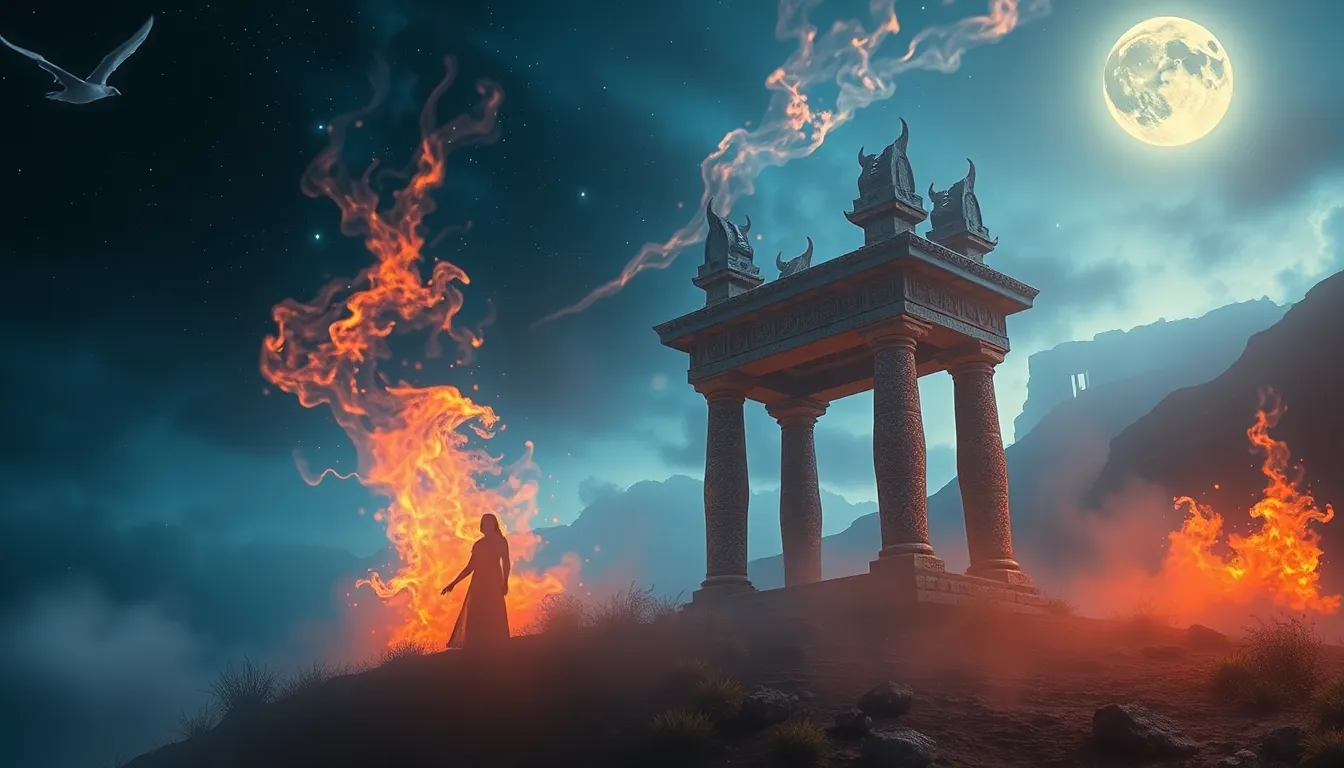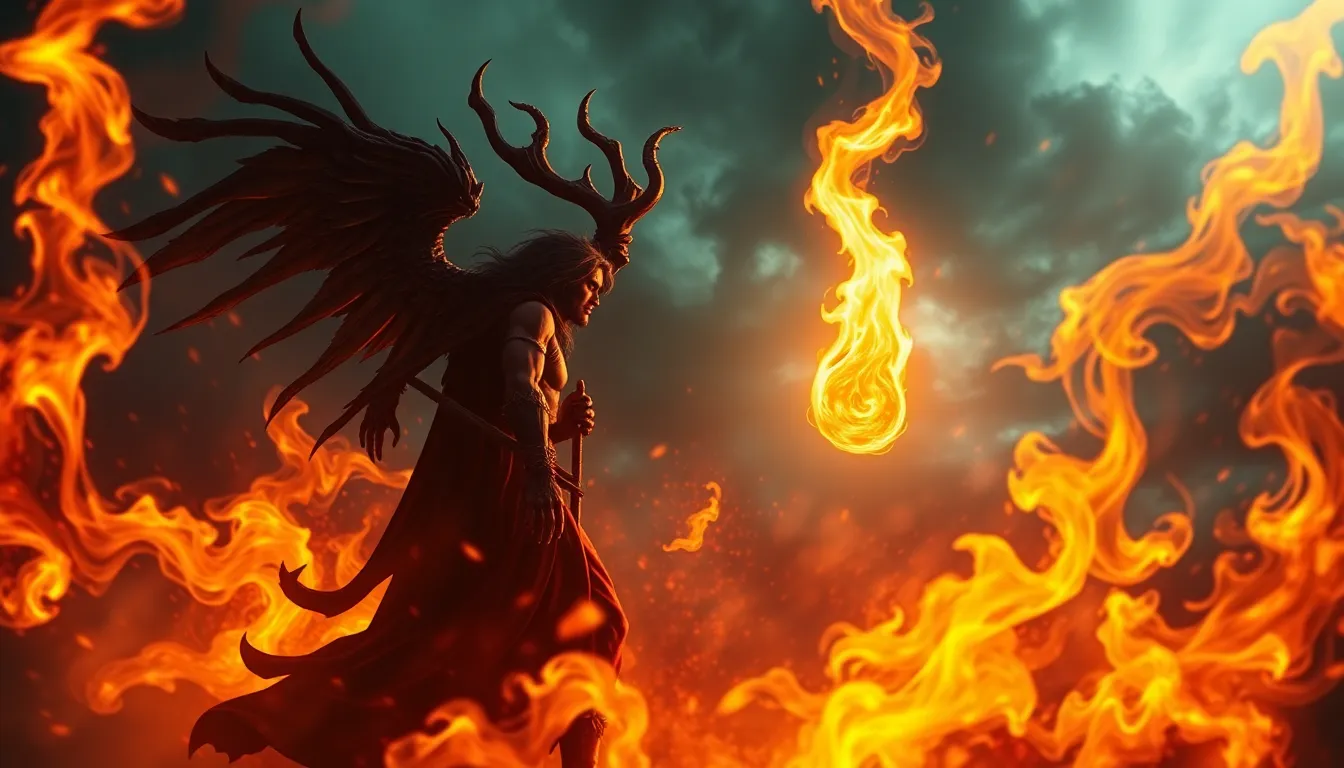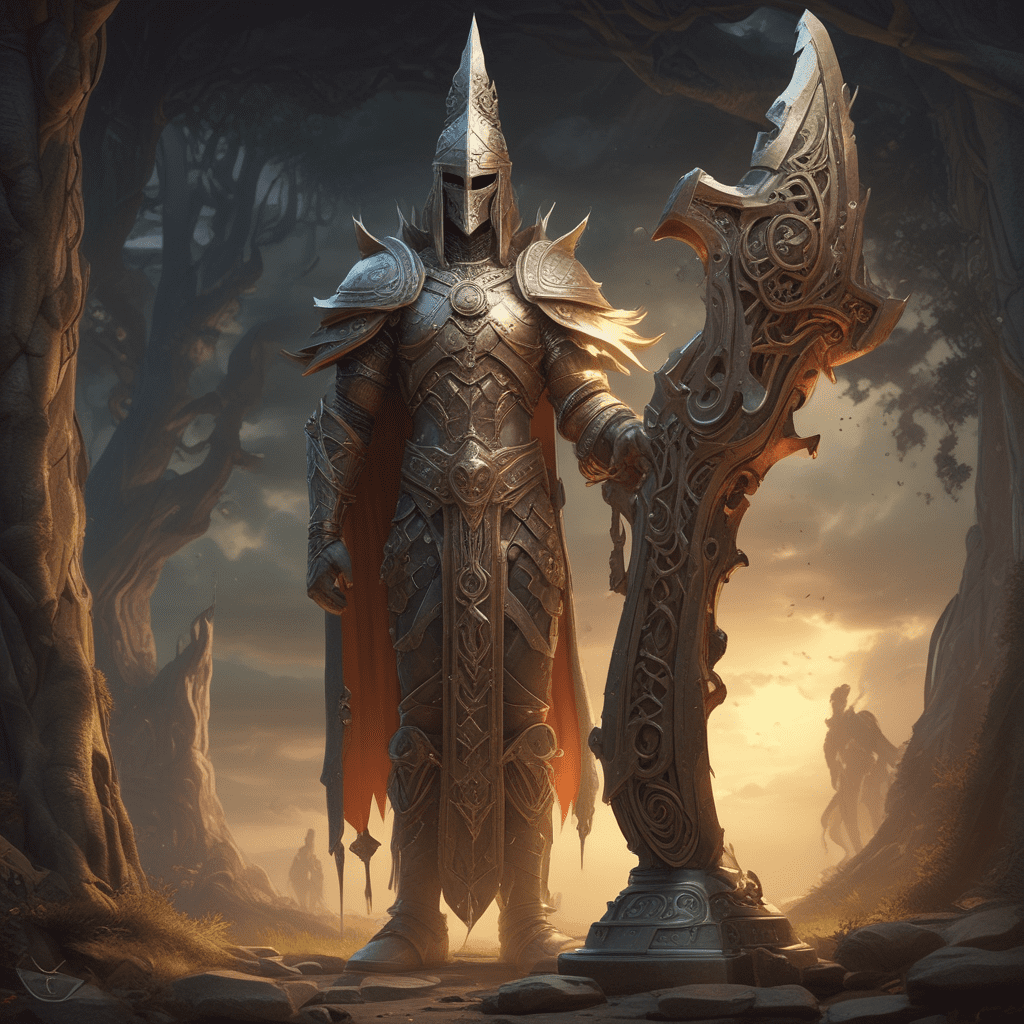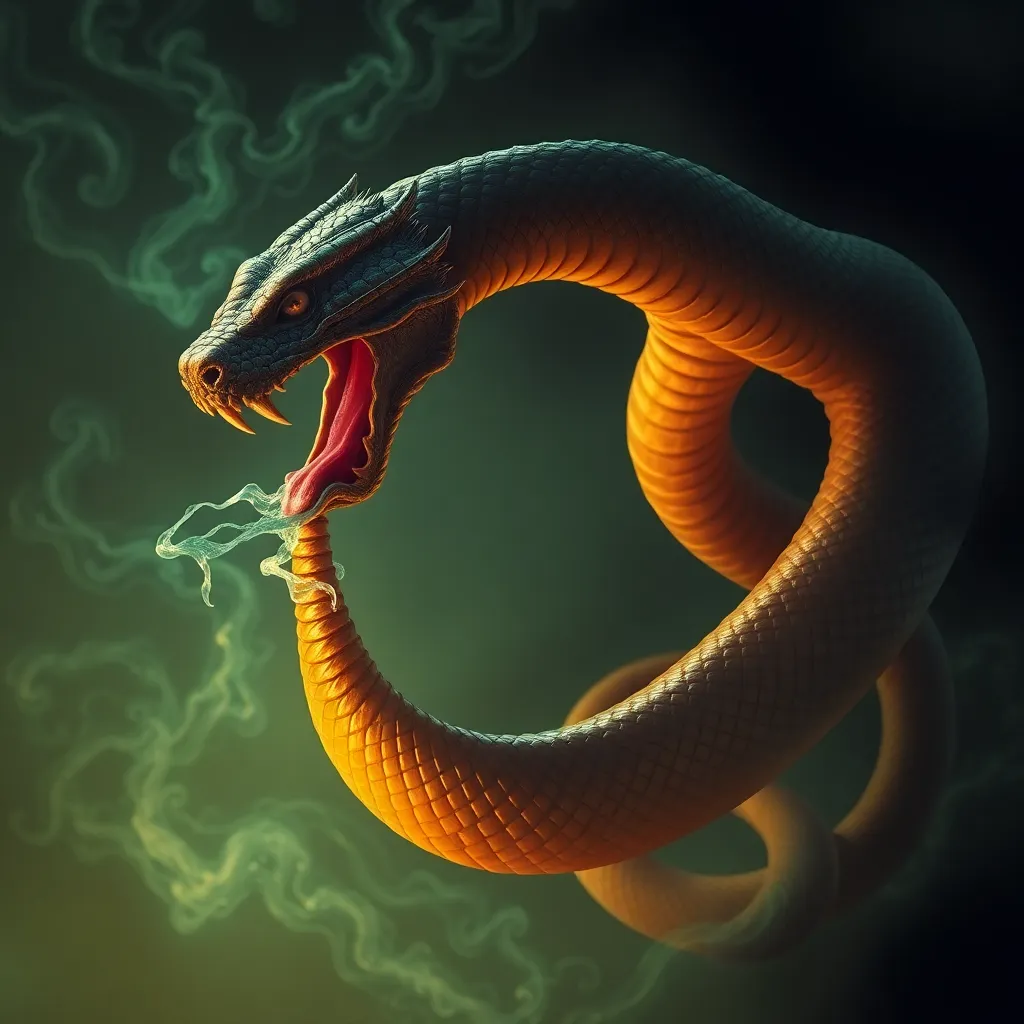The Mythical Dawn: How Different Cultures Celebrate Creation
I. Introduction
The term “mythical dawn” refers to the various narratives and traditions that describe the origins of the world and humanity across different cultures. It encapsulates the moments when the cosmos was formed and life began, often infused with rich symbolism and profound meaning.
Creation myths hold significant value in cultural contexts, serving not only as stories of how the world came to be but also as frameworks that shape the beliefs, practices, and identities of communities. They provide insight into how societies understand their place in the universe and their relationship with the divine.
This article aims to explore the diverse ways in which cultures celebrate creation, revealing the shared themes and unique expressions that characterize these sacred narratives.
II. The Concept of Creation in Mythology
Creation myths are foundational stories that explain how the universe, Earth, and life originated. They often address fundamental questions about existence and humanity’s purpose.
Common themes and motifs across cultures include:
- The emergence of order from chaos
- The involvement of deities or supernatural beings
- Symbolic representations of nature and its elements
- The cyclical nature of life and death
The role of creation in shaping cultural identity is profound. These narratives not only guide moral and ethical behaviors but also foster a sense of belonging and continuity within communities.
III. Indigenous Celebrations of Creation
A. Native American Creation Stories
Native American cultures possess a rich tapestry of creation stories that vary by tribe, yet many share common elements, such as the Earth Diver myth.
1. The Earth Diver Myth
This myth often describes how the Earth was formed from a small piece of land that was brought up from the depths of water by a divine being or an animal, such as a turtle.
2. The Role of Animals and Nature
Animals frequently play vital roles in these stories, symbolizing the interconnectedness of life and the natural world. Celebrations may involve rituals that honor these relationships, emphasizing respect for nature.
B. Australian Aboriginal Dreamtime Narratives
In Aboriginal cultures, Dreamtime is a foundational aspect of their belief systems, describing the time when ancestral beings created the world.
1. The Significance of Ancestral Beings
These beings are often depicted as creator spirits whose actions shaped the landscape, animals, and humans. They are revered through stories passed down generations.
2. Rituals and Celebrations Related to Dreamtime
Communities celebrate Dreamtime through ceremonies that include storytelling, music, and dance, reinforcing the bonds between people and their environment.
IV. Ancient Civilizations and Their Creation Rituals
A. Mesopotamian Creation Myths
Mesopotamian cultures, such as the Sumerians and Babylonians, produced some of the earliest creation myths, with the **Enuma Elish** being a key text.
1. The Enuma Elish and the Birth of the Cosmos
This epic describes the battle between the god Marduk and the primordial waters, leading to the creation of the heavens and the Earth.
2. Festivals Honoring Marduk
Annual festivals were held in Babylon to celebrate Marduk’s victory, symbolizing the triumph of order over chaos.
B. Egyptian Creation Stories
Egyptian mythology presents several creation narratives, primarily revolving around the sun god Ra.
1. The Role of Ra and the Concept of Ma’at
Ra’s journey across the sky represents the cycle of life, while Ma’at embodies truth, balance, and order, fundamental to Egyptian cosmology.
2. Celebrations of the Nile and Agricultural Cycles
The flooding of the Nile was celebrated as a renewal of life, with festivals that honored the gods and marked agricultural cycles.
V. Eastern Perspectives on Creation
A. Hindu Cosmology and the Cyclical Nature of Creation
In Hinduism, creation is seen as cyclical, involving cycles of creation, preservation, and destruction.
1. The Trimurti: Brahma, Vishnu, and Shiva
Brahma is the creator, Vishnu the preserver, and Shiva the destroyer, collectively representing the life cycle.
2. Festivals Like Diwali and Their Connection to Creation
Diwali, the festival of lights, celebrates the victory of light over darkness, coinciding with various creation narratives across India.
B. Chinese Mythology and the Creation of the World
Chinese creation myths include the story of Pangu, who is said to have separated heaven and earth.
1. Pangu and the Separation of Heaven and Earth
Pangu’s efforts resulted in the formation of the cosmos, and upon his death, his body transformed into various elements of the Earth.
2. Celebrations During the Lunar New Year
The Lunar New Year is a time of renewal and celebration, symbolizing new beginnings and the creation of life.
VI. Creation Myths in Abrahamic Religions
A. The Genesis Narrative in Judaism and Christianity
The book of Genesis describes the creation of the world in six days, culminating in the creation of humanity.
1. The Significance of the Sabbath
The Sabbath, a day of rest, commemorates God’s rest after creation, emphasizing the importance of reflection and renewal.
2. Festivals That Commemorate Creation (e.g., Rosh Hashanah)
Rosh Hashanah, the Jewish New Year, symbolizes the creation of the world and is celebrated with rituals that reflect on God’s sovereignty.
B. Islamic Perspectives on Creation
Islamic teachings on creation are rooted in the Quran, which describes Allah’s creation of the heavens and the Earth.
1. The Quranic Account of Creation
Muslims believe that Allah created everything in six days, with humanity being a significant part of creation.
2. Eid al-Fitr and Its Relation to the Concept of New Beginnings
Eid al-Fitr marks the end of Ramadan and symbolizes renewal, gratitude, and community, reflecting themes of creation and rebirth.
VII. Celebrating Creation in African Cultures
A. West African Creation Myths and Their Spiritual Significance
West African cultures have rich creation myths, such as the story of Mawu and Lisa, which embody duality and balance.
1. The Story of Mawu and Lisa
Mawu, the moon goddess, and Lisa, the sun god, represent complementary forces that created the world and maintain harmony.
2. Rituals and Ceremonies Honoring Creation
Various rituals, including storytelling and offerings, are conducted to honor these deities and celebrate the act of creation.
B. The Role of Music and Dance in Creation Celebrations
In many African cultures, music and dance are integral to creation celebrations, serving as forms of expression and connection to the divine.
These art forms are not only celebratory but also serve to pass down stories and reinforce community bonds.
VIII. Modern Interpretations and Conclusion
As societies evolve, modern interpretations of creation myths and rituals continue to flourish, often blending traditional practices with contemporary beliefs.
In our increasingly globalized world, understanding and celebrating these diverse cultural narratives can foster respect and appreciation for the richness of human experience.
In conclusion, the celebration of creation is a deeply ingrained aspect of human culture, reflecting our shared quest for understanding and connection with the universe. By exploring these varied expressions, we gain insight into the values, beliefs, and identities that shape our world.




